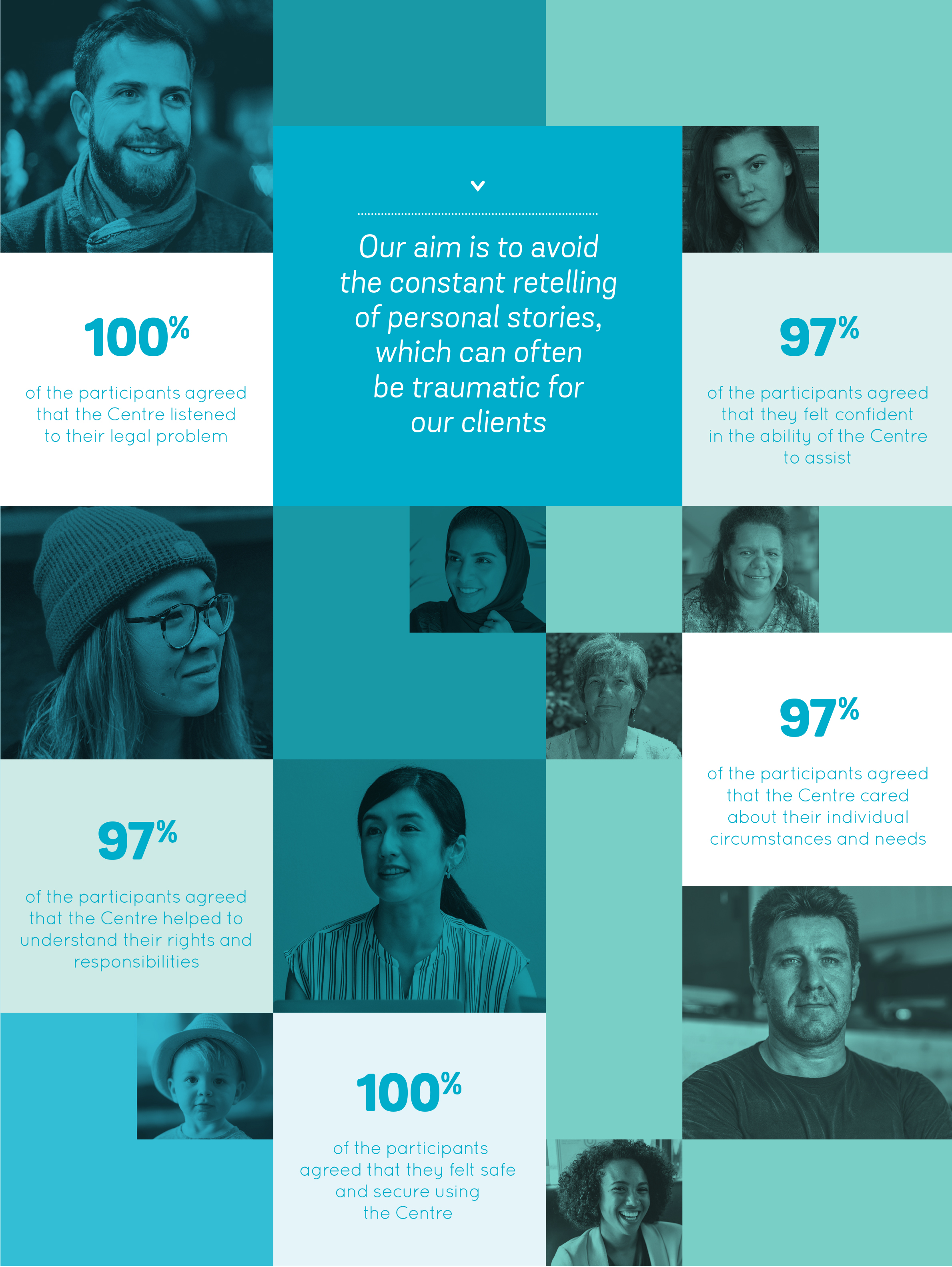THE LEGAL PRACTICE
The Legal Practice at PCLC is staffed by 21 lawyers, 7 advocates, a social worker and a rooming house worker. Clients can access our services by telephone, face to face at any of our offices, and at a number of visiting locations. Duty lawyer/advocate services are run at the Family Violence List at Frankston Magistrates’ Court and VCAT at Frankston, Dandenong, Dromana and Moorabbin. Every day we have two duty lawyers at the Federal Circuit Court from our Family Advocacy and Support Service (‘FASS’) and our general family law team. We have family violence lawyers embedded in the social work department at Peninsula Health and at the Glen Eira Enhanced Maternal Health Service.
Over the years the Centre has shifted to a more holistic approach to practice.
More in-depth work is being provided to our clients across all areas of our practice. Our clients are complex, as are their, often numerous, legal matters. Even though we have fantastic networks within the community and make many excellent and appropriate referrals; from the client’s perspective it is beneficial and very often a relief to have one organisation assisting them with as many of their issues as possible. Our aim is to avoid the constant retelling of personal stories, which can often be traumatic for our clients. This fosters trust between caseworkers and clients. This model calls for cooperation, coordination and communication across the whole practice.
To best illustrate our wrap around practice, please meet Lucinda;
although her situation appears extreme, it is certainly not unusual.
 Lucinda lives in a rooming house in Frankston. She is at home one day when the residence is visited by PCLC’s rooming house worker and social worker. They sit and talk with her and identify that she has a number of legal issues which have all arisen from the very violent relationship that she recently fled. It is suggested that she call the Centre’s intake session the next morning at 9am to see what assistance can be provided to
Lucinda lives in a rooming house in Frankston. She is at home one day when the residence is visited by PCLC’s rooming house worker and social worker. They sit and talk with her and identify that she has a number of legal issues which have all arisen from the very violent relationship that she recently fled. It is suggested that she call the Centre’s intake session the next morning at 9am to see what assistance can be provided to
her. The next morning our social worker, who has obtained Lucinda’s consent, speaks to one of the intake lawyers and explains that Lucinda may be calling.
PCLC’s social worker opens a file for Lucinda and starts to undertake a psycho/social assessment in order to identify the background issues that have led to Lucinda’s current situation. Then she and Lucinda will develop a client directed plan of action, with her most pressing concerns prioritised.
Lucinda calls our intake service and is put through to one of our generalist lawyers. The following issues are identified:
• Lucinda fled a violent relationship some time ago, although her ex-partner continues to abuse, harass and threaten her, by phone and through social media;
• Her two children, aged 4 and 8, are still in the care of their father, her ex-partner;• Her ex-partner has a current intervention order against her following a mental health episode she experienced. The order prevents her from seeing or contacting her children;
• She is still listed on the lease with her ex-partner;
• She has a car loan for a vehicle registered in her name which is still in the possession of her ex-partner;
• Her ex-partner is incurring tollway fines in her vehicle;
• She has been charged with breaching the intervention order after trying to call her eldest child on his birthday.
The lawyer from PCLC’s generalist team decides to take on the criminal charges and provides her with in-house representation at the hearing. Internal referrals are made to our Fines Clinic for a Family Violence Scheme application and to the Financial Counsellor from Family Mediation and Counselling (‘FMC’), an organisation which operates out of PCLC – Frankston. Numerous banks have policies in place under their hardship provisions to take account of situations of family violence. The FMC financial counsellor will apply on Lucinda’s behalf to the bank for special consideration.
An appointment is made with a member of our family violence team to obtain an intervention order against her ex-partner to stop the constant harassment. This is facilitated by working with the police to obtain a statement from Lucinda. Lucinda has now been identified as the victim/survivor in the relationship and after discussions between the police and one of our family violence duty lawyers, the police make an application for an intervention order on Lucinda’s behalf.
Once a final intervention order has been made, the Tenancy Advocacy and Assistance Program assist Lucinda to remove her name from the lease for the property in which her ex-partner is still living.
Lucinda’s ex-partner is refusing to allow her to have contact with her children, as he maintains she is a ‘bad parent’. There are currently no parenting orders in place. Lucinda is referred to the Family Violence to Family Law Pilot Program. She is assisted to access Family Dispute Resolution through Victoria Legal Aid. If legally assisted mediation is not successful, an application for a litigation grant will be made to Legal Aid. If Lucinda had not been eligible for a grant of legal aid, she could have accessed the services of our family lawyers, who are not part of the pilot, or be assisted at court by one of our duty lawyers.
Lucinda is at a critical crossroad in her life; she has just made some of the most difficult and bravest decisions she has ever had to make. However, she no doubt feels scared and vulnerable and possibly overwhelmed by the path that lies before her. Hopefully, by ‘wrapping’ our services around her we can make her journey that little bit easier, along with assisting her to access the best support and legal outcomes.
CLIENT SATISFACTION SURVEY
The role of a community lawyer is somewhat unique; you need to be a full time lawyer, part-time counsellor, case manager and even social worker. Our clients are often at their lowest point when they come to the Legal Centre.
We work hard to provide clients with a supportive environment, where they can have their legal matters addressed and their associated issues recognised with appropriate referrals being made to our extensive network of support services, both internal and external.
This year we participated in a state wide and independent client satisfaction survey project with the Federation of Community Legal Centres Victoria. The results for PCLC were outstanding. As shown below there was a significant level of satisfaction that illustrates our efforts to provide a holistic service to our clients has been fruitful.

